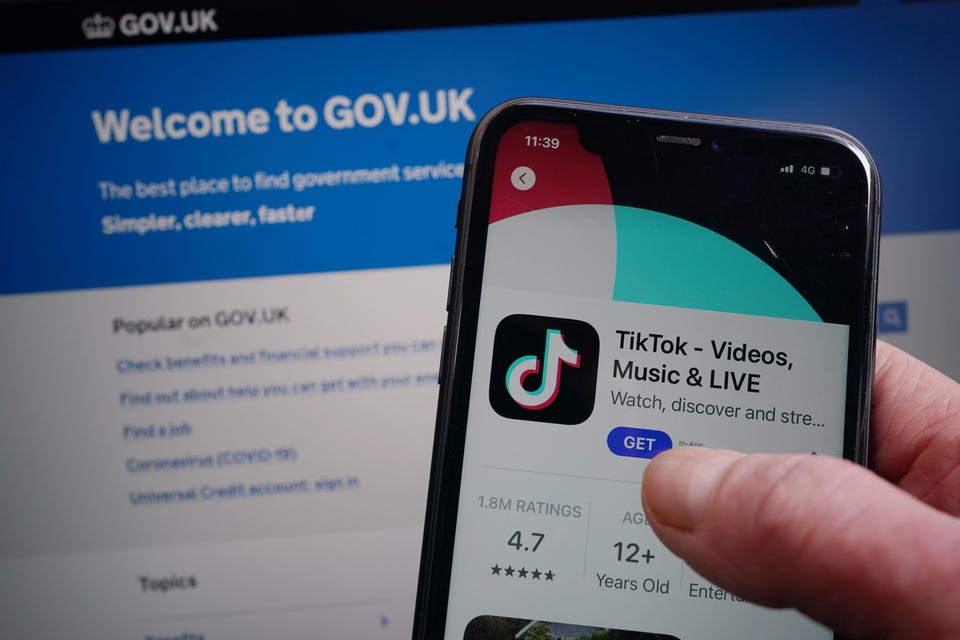Security Experts Weigh In On UK’s Ban Of TikTok On Government Devices


On Thursday, the UK government announced that beginning immediately TikTok would be banned on government devices. This would bring the UK in line with the United States and the European Commission, while also reflecting the deteriorating relations with Beijing.
This was a surprise move as it was a complete reversal from the UK’s previous position on the Chinese-owned social video-sharing app. The move also came as Washington called for ByteDance – the owner of TikTok – to sell the app or face a possible ban in the United States.
The decision followed a review that was conducted by government cybersecurity experts that began last November. The app will now be banned on all government devices, but not any personal mobile phones.
The UK had previously taken a more relaxed view of the app, which is popular with millions of young people as well as celebrities and influencers around the world. According to reports from the UK-based Guardian, the UK government had sought to leave the decision to install the app to the individual politician or minister. In fact, at least two cabinet ministers had admitted to using TikTok – including Michelle Donelan, the science and technology secretary, and Grant Shapps, energy security and net zero secretary.
TikTok officials have expressed disappointment with the UK’s decision.
“We believe these bans have been based on fundamental misconceptions and driven by wider geopolitics, in which TikTok, and our millions of users in the UK, play no part. We remain committed to working with the government to address any concerns,” ByteDance said via a statement.
Reaction From Security Experts
A number of cybersecurity experts were quick to weigh in on the news of the ban on all government devices in the UK.
“Just a decade ago, the notion of corporate managers and government officials possessing smart mobile devices that could instantly access work information was a novelty,” said Chris Handscomb, EMEA (Europe, the Middle East, and Africa) solutions engineer at cybersecurity firm Centripetal.
“Today, these devices are ubiquitous, and Internet speeds have vastly improved, enabling individuals to consume copious amounts of high-quality content at the click of a finger,” Handscomb explained. “However, with this heightened connectivity, communication, and entertainment, there is the possibility of malicious actors exploiting device vulnerabilities and gathering sensitive data.”
The concern is that sometimes very personal data can then be sold to the highest bidder creating a risk factor for companies and government agencies where – potentially compromised – individual contributors are handling sensitive trade or state secrets and may now be vulnerable to blackmail.
“It is therefore imperative that companies and government agencies prioritize their security measures, safeguarding their employees and enterprises from potential threats,” added Handscomb.
The UK also won’t likely be the last to call for a ban on TikTok on government devices, while the U.S. could even lead efforts for a total ban of the social media platform on all devices.
“We’ll likely continue to see governments crack down on TikTok use by government officials, employees, and the military. The U.S. is putting similar restrictions in place, while Canada, Belgium, and the European Commission already bar the app from being installed on government phones,” suggested Chris Hauk, consumer privacy champion at Pixel Privacy.
Hauk added that he’d support a ban on social media apps expanding beyond just those with foreign ownership, and noted that Facebook, Twitter, and others have no place on government devices.
“While there isn’t currently any concern over foreign governments having access to data from these services, users have a tendency to ‘over share,’ meaning government info could be inadvertently shared on these networks,” Hauk noted.
It is also unclear how ByteDance will react to the calls for TikTok to be sold, but that might be the only way to ensure that the clock doesn’t run out for the popular app.
“Gen. Nakasone, the head of Cyber Command, likened TikTok to a loaded gun,” said Tom Kellermann, senior vice president of cyber strategy at Contrast Security. “We have entered a brave new world. The U.S. must thwart the unfettered access to American digital lives and mitigate the ongoing espionage campaign. The U.S. will force a sale of the company to an American entity. If not sold, it will be banned.”
